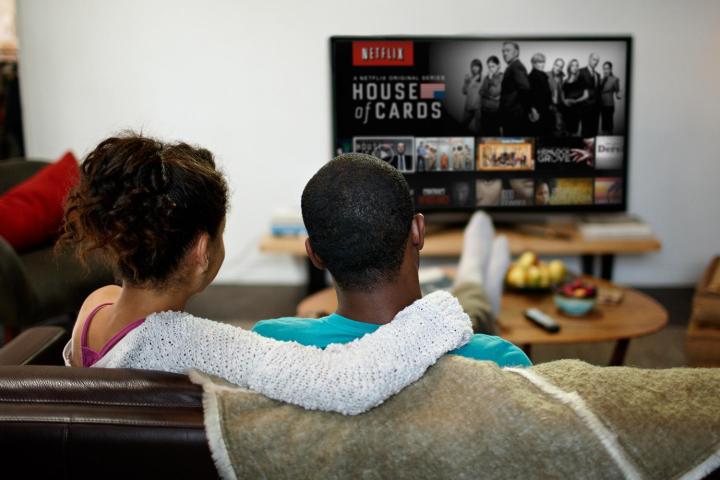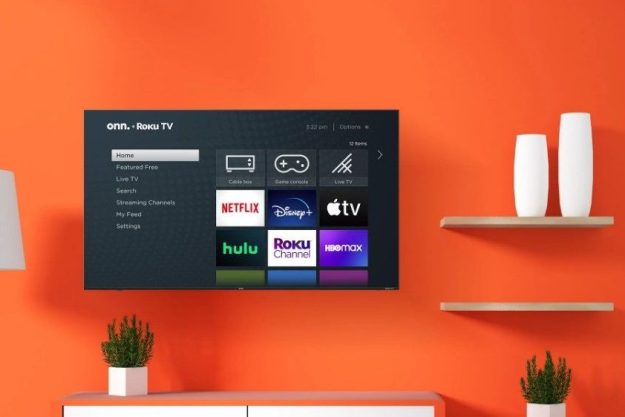
During an interview on Bloomberg’s “In the Loop” Friday, Bibb explained that a dangerous combination of Netflix’s enticing subscriber base — which just passed 50 million globally — and an increasingly competitive online marketplace has marked the company as a prime target for acquisition.
“I wouldn’t be shocked if (Chinese e-commerce giant) Alibaba, or Yahoo stepped up and instantly bought it,” Bibb said.
When asked if he thought Netflix’s outspoken CEO, Reed Hastings — the poster child media mogul for the cord-cutter crowd — would actually consider selling his precious brand, Bibb said Hastings may have no choice in the matter.
“He’s got a growing off-balance sheet liability that’s almost $4 billion, and his cost of content, with all the new players coming in…his cash flow is really crippling.”
Indeed, thanks to billions of dollars in content agreements and reams of powerful new competitors jumping into the online TV ring, Netflix may have a hard time staying afloat amid tumultuous seas as the industry evolves.
Netflix’s big-time competition
Earlier this week, HBO, which is thought to be Netflix’s most comparable competitor in this strange new Web TV landscape, announced plans to compete head-to head against the service with a stand-alone Internet streaming option next year. And while HBO may face hurdles similar to Netflix’s as it moves away from lucrative cable deals (from which it earns around $5 billion annually, according to Bibb), it does so with the backing of one of the largest media conglomerates in the country: Time Warner.
And consider the rest of Netflix’s competition. Amazon’s Prime Instant Video, Hulu Plus, and YouTube are all owned (or partially staked, in Hulu’s case) by massive multi-billion dollar entities. Even network giant CBS is getting into the online TV game, launching its own stand alone service, called All Access, just a day after HBO’s announcement. The effect of all this competition may well mean Netflix could be pushed out of the very industry it pioneered, by the very same companies it forced into the online space to begin with through the sheer magnitude of its own popularity.

That could be detrimental to the dawning age of Internet TV. Before Netflix came around, the pay TV powers that be, including content producers like Sony and 21st Century Fox, and service providers like Comcast and Time Warner (which may soon merge into a single company), weren’t looking for a convenient new way to provide viewers with access to gobs of content at an affordable price — and why would they? These massive conglomerates make truckloads of money operating under the current pay TV paradigm, enough to make even Scrooge McDuck green with envy.
No, it took a scrappy independent service, starting as nothing more than a mail-order Blockbuster, to change the way we watch — and think about — entertainment. Growing up with the rise of broadband’s ability to sustain high-quality video streams, Netflix has early and often turned the status quo on its head, even amid its own offerings. And in doing so, it has become a beloved and integral part of the viewing model for its millions of loyal subscribers.
Netflix was first of its kind to create viable original content that can sit on the same pedestal as traditional TV, the first to bring the streaming paradigm to the masses on a broad enough scale to compare with cable and satellite offerings, and the first to get into original movie distribution and production. In addition, the company has been outspoken on consumer advocacy, including taking a hard stand for net neutrality, which affects every consumer in the modern world.
What would Netflix look like, then, if it were turned out by a major entity? For one thing, it would have to contend with said entity’s other properties and holdings, making sure not to upset the profit apple cart. Its affinity for innovation could be heavily crippled were it to be purchased by a service provider like Verizon or Comcast — the Netflix doomsday scenario, if you will.
Predicting what might happen if Yahoo, or Chinese-owned Alibaba bought out the company is a tougher job. While it might be business as usual should Yahoo own the company, it would no doubt lose its ability to turn on a dime as it has so often done, taking on a brand new group of tech investors to satisfy. And to be perfectly honest, we have no idea what could happen if a Chinese company owned the big red streaming service — but with China’s record on the censorship of free speech and general authoritarianism online, it is an unsettling thought to say the least.
This isn’t the first time Netflix has faced the possibility of a hostile takeover. According to The Reporter, Netflix constructed means to protect itself against a hostile takeover back in November of 2012 by drafting a shareholder rights plan known as a “poison pill,” when activist investor Carl Icahn began buying up Netflix stock in droves. However, while the poison pill wasn’t due to expire until November 2015, the company terminated it at the dawn of 2014, leaving it open to attack.
While any Netflix acquisition is for now mere speculation, the company’s model of paying out billions, and raking in mere millions, puts it in a very precarious position. Though Netflix may be as popular as ever, it may not be able to hold off the wolves at the door for long. For those who value the importance of the company’s role as an innovator and pioneer, the thought of any industry consolidation involving big red is a troubling one indeed.
Editors' Recommendations
- The Great Netflix Password Crackdown is still happening
- How to use Netflix’s secret category codes to find what you want to watch
- One day you might get emergency alerts through Netflix and Spotify
- HBO Max vs. Netflix: A very early look at how Warner’s new streamer stacks up
- Netflix Recommended TVs explained: What to know


